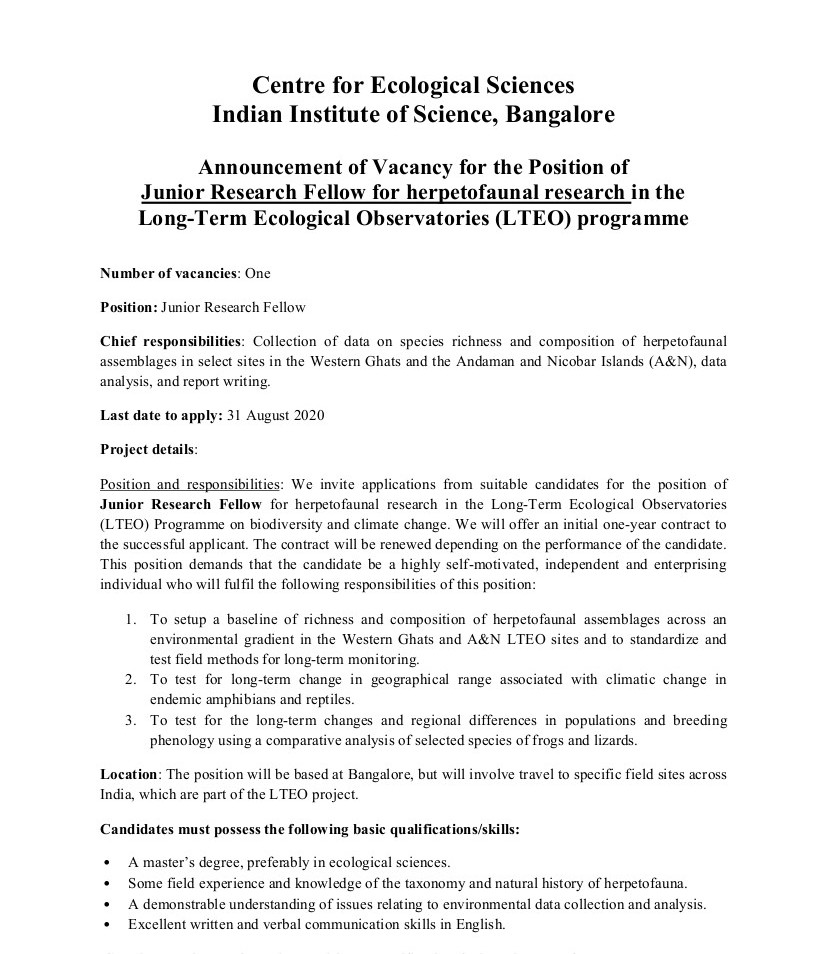Announcement of Vacancy for the Position of JRF for herpetofaunal research in the LTEO programme
Fri, 2020-08-14 16:01
Candidates with the following additional qualifications/skills will be preferred:
• Experience in field work with herpetofauna
• Quantitative skills including statistics and study design.
• Data analysis skills including working knowledge of R and GIS.
Remuneration: Salary will be commensurate with qualifications and work experience in accordance with GOI and IISc scales.
How to apply:
* Submit a complete CV along with a cover letter (not exceeding one page) clearly conveying why you consider yourself a suitable candidate for this position.
* Provide the names of two referees along with their contact details in the CV.
Incomplete applications will not be considered.
This position will be filled as soon as a suitable candidate is identified; interested individuals are therefore requested to apply immediately. Short listed candidates will be invited for an online interview in the first week of September.
Please email your application to: harikrishnan@IISc.ac.in with the subject ‘JRF - LTEO Herpetofauna’.
About CES
The Centre for Ecological Sciences, founded in 1983 with the support of the Ministry of Environment and Forests offers exciting opportunities for research in a variety of areas in ecology. Over the past 25 years, and more, we have instilled a tradition of rigorous enquiry in diverse areas of ecology, evolution and behavior. Our projects are often integrative and we use multiple approaches from theoretical and laboratory studies to field-based research to explore our research questions. A number of our research areas are breaking new ground in ecology while others have significant roles in conservation.
About LTEO
The Ministry of Environment Forest and Climate Change is launching the Long Term Ecological Observatories (LTEO) Programme, a multi-institutional, multi-disciplinary, all India coordinated project, which will be led by the Indian Institute of Science, Bengaluru. In its first phase, the LTEO programme will monitor a range of themes and taxa across the Indian subcontinent including soil, forests, grasslands, invertebrates, fish, herpetofauna, birds, animal movement and marine ecosystems. The work will be initiated at 6 index sites representing different biomes including the North-western Arid Zone, Western Himalaya, Eastern Himalaya, Central India, Western Ghats and Andaman and Nicobar Islands. The entire project will be managed by a Coordination Cell at the Indian Institute of Science.

Add new comment